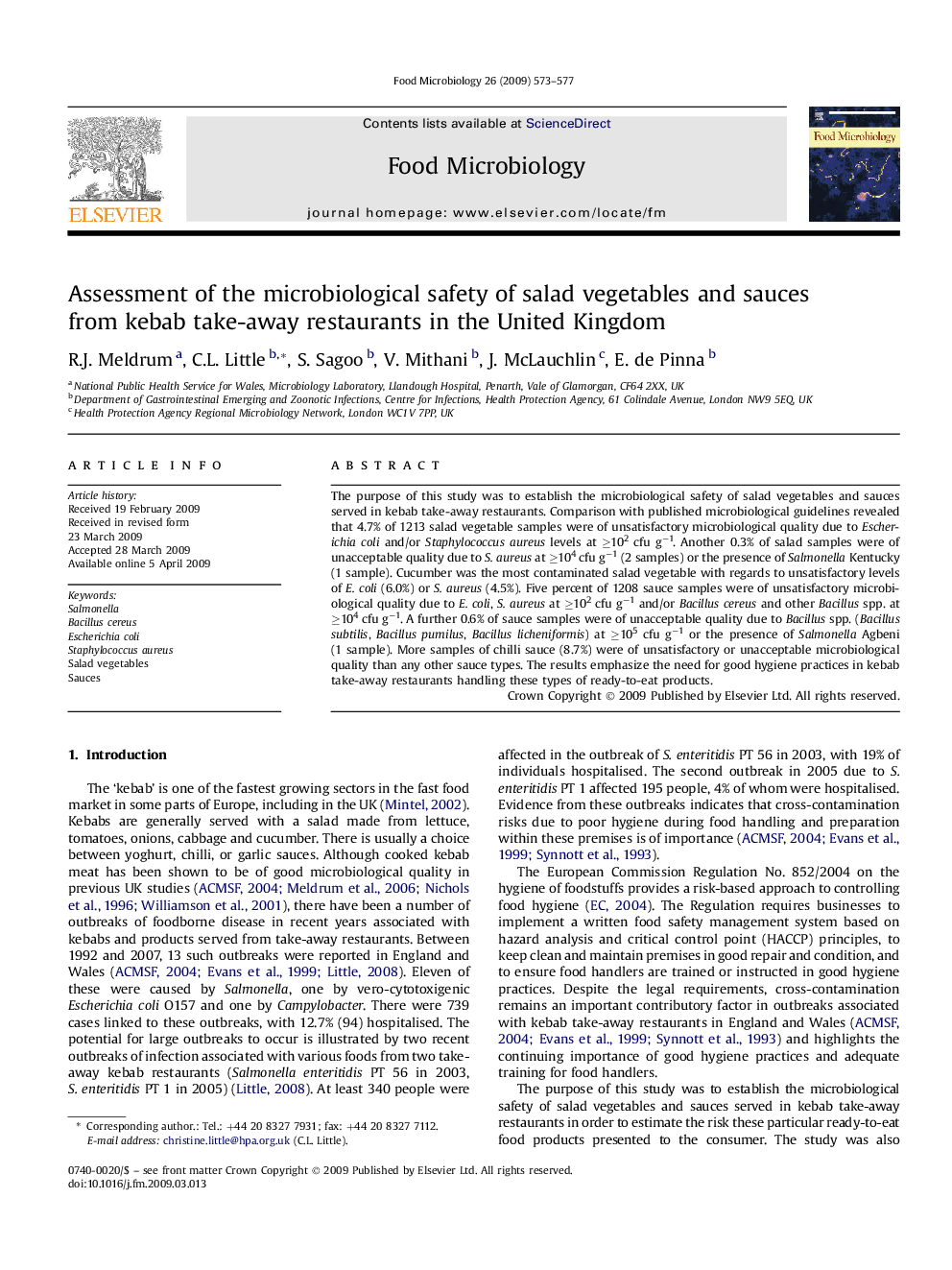| Article ID | Journal | Published Year | Pages | File Type |
|---|---|---|---|---|
| 4363574 | Food Microbiology | 2009 | 5 Pages |
The purpose of this study was to establish the microbiological safety of salad vegetables and sauces served in kebab take-away restaurants. Comparison with published microbiological guidelines revealed that 4.7% of 1213 salad vegetable samples were of unsatisfactory microbiological quality due to Escherichia coli and/or Staphylococcus aureus levels at ≥102 cfu g−1. Another 0.3% of salad samples were of unacceptable quality due to S. aureus at ≥104 cfu g−1 (2 samples) or the presence of Salmonella Kentucky (1 sample). Cucumber was the most contaminated salad vegetable with regards to unsatisfactory levels of E. coli (6.0%) or S. aureus (4.5%). Five percent of 1208 sauce samples were of unsatisfactory microbiological quality due to E. coli, S. aureus at ≥102 cfu g−1 and/or Bacillus cereus and other Bacillus spp. at ≥104 cfu g−1. A further 0.6% of sauce samples were of unacceptable quality due to Bacillus spp. (Bacillus subtilis, Bacillus pumilus, Bacillus licheniformis) at ≥105 cfu g−1 or the presence of Salmonella Agbeni (1 sample). More samples of chilli sauce (8.7%) were of unsatisfactory or unacceptable microbiological quality than any other sauce types. The results emphasize the need for good hygiene practices in kebab take-away restaurants handling these types of ready-to-eat products.
